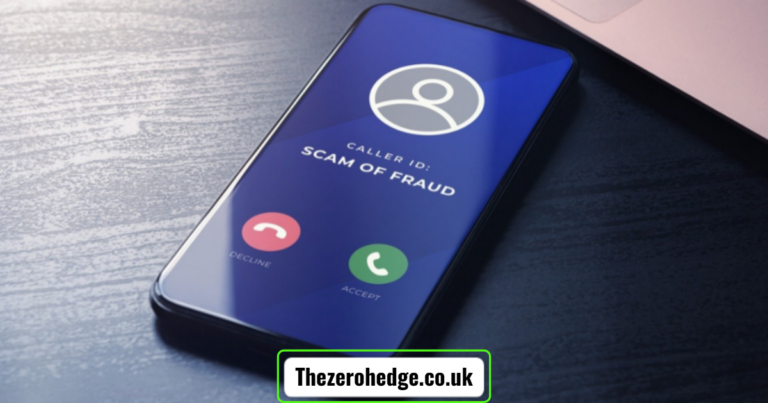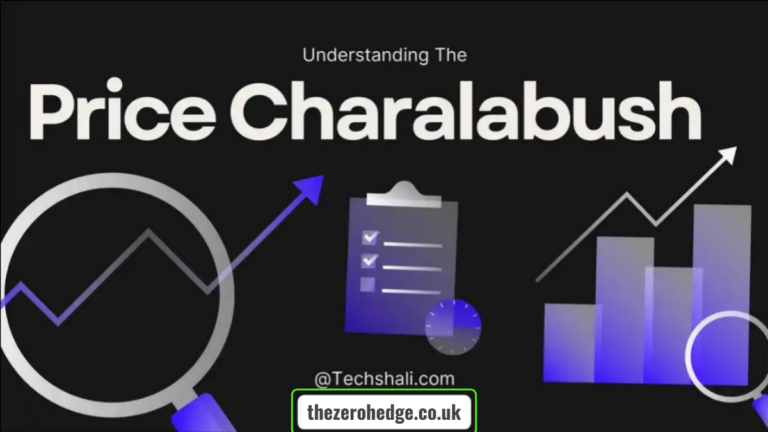
Spam and scam phone calls continue to be a significant concern for UK residents in 2025. With technology evolving rapidly, scammers are finding more sophisticated ways to deceive people, often leading to financial loss, privacy invasion, and emotional distress. In this article, we highlight some of the top reported spam numbers in the UK for 2025, including detailed insights into each number, common tactics used, and how to protect yourself from these unwanted calls.
Quick Overview of Top Spam Numbers
Below is a quick overview of some of the most commonly reported spam numbers in the UK for 2025. Use this table as a handy reference to quickly identify potentially suspicious calls:
| Phone Number | Type of Scam | Year Active | Common Complaints |
| 2034752474 | Tech Support Scam | 2025 | Fake Microsoft support, computer security alerts |
| 3301740216 | Debt Collection Scam | 2025 | Aggressive debt recovery, legal threats |
| 7874425213 | Financial Fraud | 2025 | Investment scams, fake bank alerts |
| 2870024018 | HMRC Tax Fraud | 2025 | Fake tax demands, arrest threats |
| 7418360549 | Prize Win Scam | 2025 | Fake lottery wins, prize fees |
| 2870024625 | Health Insurance Scam | 2025 | Fake medical cover offers, personal data phishing |
| 1913640223 | Energy Bill Scam | 2025 | Fake energy rebates, payment demands |
| 1618200299 | Insurance Fraud | 2025 | Car accident claims, PPI refunds |
| 1782401163 | Loan Scam | 2025 | Fake loan approvals, upfront fees |
| 2080448719 | Bank Impersonation | 2025 | Fake bank fraud alerts, account verification requests |
Common Types of Phone Scams in 2025
The types of scams these numbers are linked to have evolved over the years, leveraging technology and social engineering tactics to appear more convincing. Here are some common types of phone scams still active in 2025:
Tech Support Scams
These scams often involve callers pretending to be from major tech companies like Microsoft or Apple. They claim your device is infected with a virus or has been compromised, urging you to provide remote access or pay for unnecessary security software.

The number 2034752474 has been heavily reported for such tactics, with victims receiving urgent security alerts and demands for immediate action.
Debt Collection Scams
Numbers like 3301740216 are often associated with aggressive debt recovery scams. Scammers typically pose as debt collectors or legal representatives, using intimidation and false legal threats to extract money from unsuspecting victims.
Financial Fraud and Bank Scams
Financial scams, like those reported from 7874425213, often involve fake investment opportunities, fraudulent loan offers, or misleading bank notifications. Scammers aim to collect sensitive financial information to drain bank accounts or commit identity theft.
HMRC Tax Fraud Scams
One of the most persistent scam types in the UK is the HMRC tax fraud scam, with numbers like 2870024018 frequently used to threaten victims with arrest over unpaid taxes or fines. These calls often create a sense of urgency, pushing victims to pay quickly to avoid legal trouble.
Prize and Lottery Scams
Numbers like 7418360549 are linked to fake prize or lottery scams, where callers promise large cash prizes in exchange for upfront fees or personal information. These scams prey on people’s hopes for a financial windfall, only to leave them out of pocket.
Health Insurance Scams
With the rising costs of healthcare, scammers have turned to fake medical insurance offers, as seen with 2870024625. These calls often attempt to collect sensitive health and financial data under the guise of affordable medical cover.
Energy Bill and Utility Scams
Scammers using numbers like 1913640223 often target homeowners with fake energy rebate offers or demands for overdue payments, preying on confusion around rising utility costs.
Loan and Debt Relief Scams
Numbers like 1782401163 are linked to fake loan approvals or debt relief programs, where callers offer unrealistic financial solutions in exchange for upfront fees, only to disappear once the money is paid.

Bank Impersonation Scams
Finally, 2080448719 is frequently reported for bank impersonation scams, where callers claim to be from your bank, alerting you to suspicious account activity to trick you into revealing sensitive banking information.
How to Protect Yourself from Phone Scams
To safeguard yourself from these scams, consider the following tips:
- Never share personal information over the phone.
- Use call-blocking apps like TrueCaller or WhoCalledMe.
- Register your number with the TPS (Telephone Preference Service).
- Report suspicious numbers to Ofcom and the ICO.
- Stay informed about the latest scam tactics.
Conclusion and Call to Action
While it’s impossible to eliminate spam calls entirely, staying vigilant and proactive can significantly reduce your risk of falling victim to these scams. Always be skeptical of unexpected calls requesting personal information or urgent payments. Use trusted apps like WhoCalledMe or TrueCaller to verify numbers, and report suspicious calls to Ofcom, TPS, or the ICO. Protect your privacy and finances by staying alert in 2025!
FAQs
1. How can I block these numbers? Most smartphones allow you to block specific numbers through the call settings menu. Additionally, apps like TrueCaller or your network provider can help.
2. Can I report these numbers? Yes, you can report suspicious numbers to Ofcom, TPS, or the ICO to help others avoid falling victim.
3. Why do these scams keep happening? Scammers continuously adapt their tactics to exploit new vulnerabilities and technological trends, making it a persistent issue.
4. How do I identify a scam call? Look for urgent or threatening language, requests for personal information, or unexpected financial demands.
5. Are these numbers ever legitimate? While some numbers might be spoofed, the ones listed here are consistently reported as scam numbers by multiple users.
Also Read This: What You Need to Know About 2034752480





